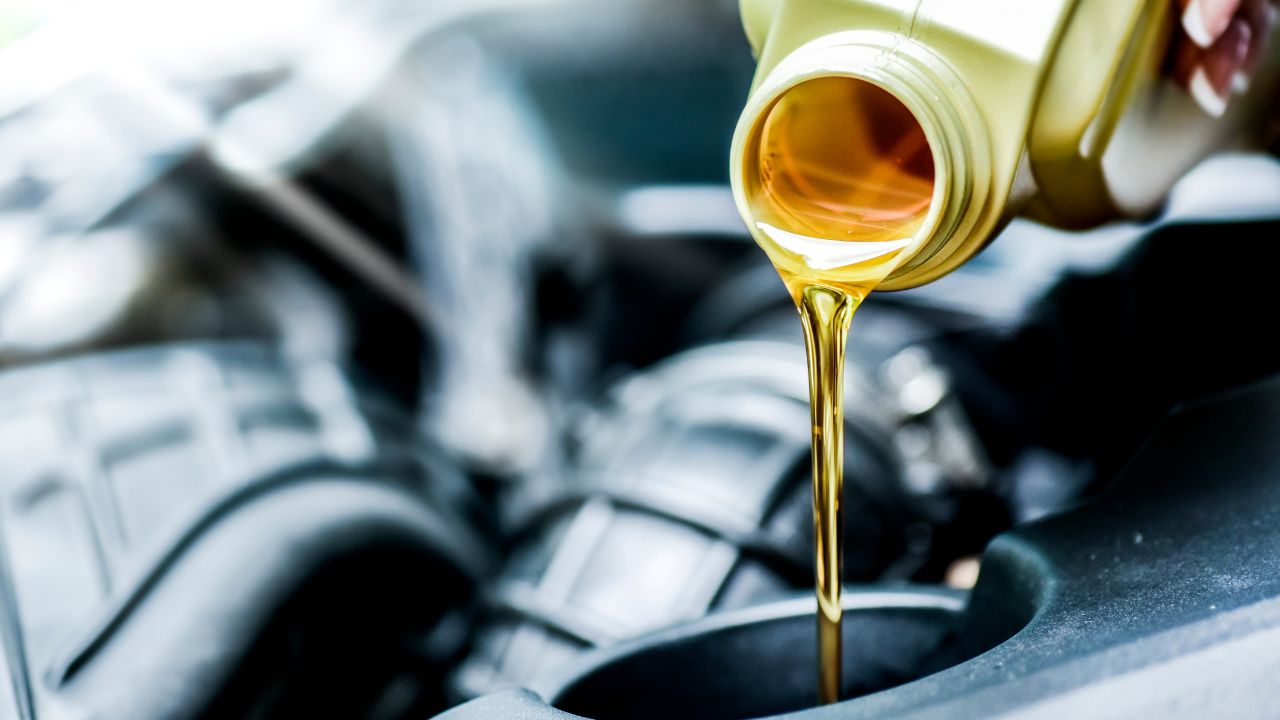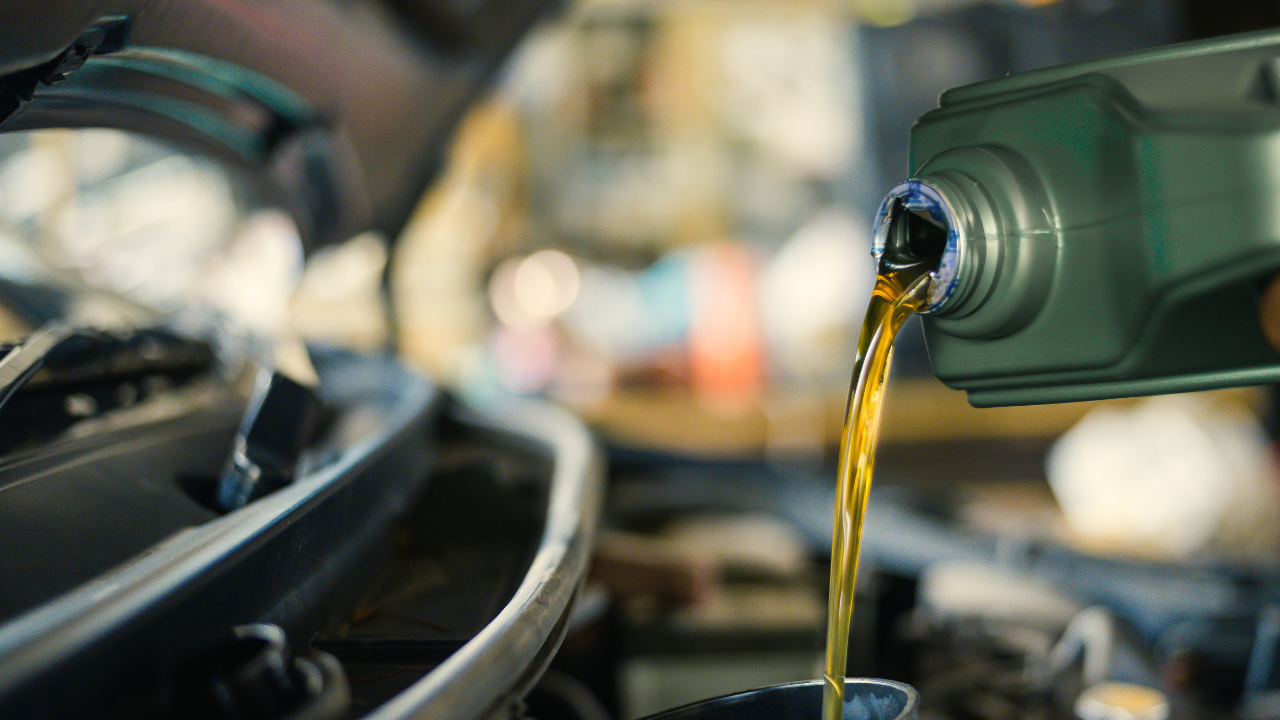Engine oil is one of the essential fluids that keeps our vehicles running smoothly and efficiently. It acts as a lubricant for the engine’s moving parts, preventing wear and tear and ensuring optimal performance. However, there are instances when too much oil can be detrimental to the engine’s health. Overfilling engine oil can lead to serious damage, increased emissions, and even engine failure. This is a common issue that many vehicle owners encounter, whether by mistake or due to misinformation.
Fortunately, there are steps that can be taken to fix overfilling engine oil and prevent any long-term consequences. In this article, we will discuss the causes of overfilling engine oil, the potential damage it can cause, and the necessary steps to fix it. With a professional and proactive approach, we can ensure the health and longevity of our vehicles. So, let’s dive in and learn how to fix overfilling engine oil and keep our engines running at their best.
Identify the Symptoms of Overfilling

Excessive oil in an engine, commonly referred to as overfilling engine oil, can lead to various issues that can adversely affect the performance and longevity of the engine. One of the symptoms of overfilling engine oil is engine knock, characterized by a knocking or pinging sound coming from the engine. This occurs when the excess oil creates excessive pressure in the crankcase, causing improper combustion and a knocking noise.
Additionally, overfilling engine oil can result in decreased engine performance, reduced fuel efficiency, and increased emissions. It may also cause oil leaks or blowouts due to excess pressure. Monitoring the oil level regularly and being aware of symptoms such as engine knock, decreased performance, and oil leaks can help identify the potential issue of overfilling engine oil and prompt timely action to resolve it.
Check the Oil Level Carefully

To ensure the proper functioning of your engine and avoid the complications associated with overfilling engine oil, it is crucial to check the oil level carefully. Start by parking your vehicle on a flat surface and allowing the engine to cool down for a few minutes. Locate the dipstick, usually indicated by a bright-colored handle, and remove it from the engine. Wipe it clean with a cloth and reinsert it fully into the dipstick tube. Withdraw the dipstick again and observe the oil level.
The dipstick usually has indicators or notches that denote the optimal oil level range. Ensure that the oil level falls within this range. If the oil level is below the minimum mark, you may need to add more oil, while if it exceeds the maximum mark, it indicates overfilling. By checking the oil level carefully on a regular basis, you can prevent the consequences of overfilling engine oil and maintain your engine’s performance and longevity.
Drain Excess Oil if Necessary
If, upon checking the oil level, you find that it exceeds the maximum mark on the dipstick, indicating overfilling of the engine oil, it becomes necessary to drain the excess oil. Overfilling engine oil can have negative effects on your engine, such as engine knock, reduced lubrication efficiency, and potential damage to engine components. To drain the excess oil, locate the oil drain plug underneath the engine. Place a drain pan or container beneath it to collect the oil. Carefully loosen the drain plug using the appropriate wrench or socket, ensuring not to remove it completely.
Allow the excess oil to drain out completely into the drain pan. Once the oil has drained, tighten the drain plug securely. It is important to note that when draining excess oil, it is advisable to replace the oil filter as well, as it may also have been affected by overfilling. Finally, refill the engine with the appropriate amount of oil, following the manufacturer’s recommendations. This process of draining excess oil if necessary will help in rectifying the consequences of overfilling and ensure the optimal performance and longevity of your engine.
Use the Right Oil Type

Using the right oil type in your engine is crucial to its performance and longevity. While overfilling engine oil can cause issues, it is equally important to ensure that you are using the correct oil type for your specific engine. Using the wrong oil, such as overfilling with diesel engine oil in a gasoline engine or vice versa, can result in inadequate lubrication and potential damage to engine components.
To determine the right oil type for your engine, consult your vehicle’s owner’s manual or seek guidance from a qualified mechanic. They can recommend the appropriate viscosity and oil specifications that meet your engine’s requirements. By using the right oil type, you can ensure optimal lubrication, reduce the risk of engine knock, and maintain the overall health of your engine.
Avoid Overfilling Diesel Engines
When it comes to diesel engines, overfilling with engine oil can have detrimental effects on performance and reliability. Overfilling diesel engine oil can lead to increased pressure within the engine, potentially causing oil leaks, excessive oil consumption, and decreased fuel efficiency. Moreover, the excess oil can impede proper lubrication, leading to increased friction and wear on critical engine components.
This can result in reduced engine lifespan, increased maintenance costs, and potential engine failure. To avoid these issues, it is crucial to follow the manufacturer’s recommended oil capacity and ensure that the oil level is within the designated range. Regularly checking the oil level and conducting routine oil changes with the correct oil type and quantity will help preserve the longevity and efficiency of your diesel engine.
Understand the Risks of Overfilling
It is important to understand the risks associated with overfilling engine oil, regardless of whether it is a diesel or gasoline engine. Overfilling engine oil can cause a range of problems, including engine knock or pinging. This occurs when the excess oil disrupts the combustion process, leading to abnormal and uncontrolled ignition of the fuel-air mixture. Engine knock not only affects performance but can also cause damage to critical engine components over time.
Additionally, overfilling engine oil can increase the pressure within the engine, potentially leading to oil leaks and reduced lubrication. These issues can result in decreased fuel efficiency, increased maintenance costs, and even engine failure. To protect your engine, it is crucial to adhere to the recommended oil capacity and regularly check the oil level to ensure it is within the specified range. Proper maintenance and following manufacturer guidelines will help prevent the risks associated with overfilled engine oil and ensure optimal engine performance.
Don’t Ignore Engine Knock Sounds
If you notice engine knock sounds coming from your vehicle, it is essential not to ignore them. Engine knock is often a sign of a serious underlying issue, and in some cases, it can be directly related to overfilling engine oil. Ignoring engine knock sounds can lead to further damage and potential engine failure if left unaddressed.
It is crucial to diagnose and resolve the cause of the knocking promptly to prevent any long-term consequences. Seeking professional help from a qualified mechanic or automotive technician is recommended to accurately diagnose the problem and determine the appropriate solution. Remember, addressing engine knock sounds promptly can help maintain the performance, reliability, and longevity of your vehicle’s engine.
Seek Professional Help if Needed
If you have attempted to resolve the issue of overfilling engine oil but are still experiencing problems or have concerns about the effects of overfilling on your engine, it is advisable to seek professional help. Professional mechanics and automotive technicians have the knowledge, expertise, and diagnostic tools necessary to accurately assess the situation and provide an appropriate solution.
They can thoroughly inspect your engine, identify any potential damage caused by overfilling, and recommend the best course of action to rectify the issue. Trusting professionals with the necessary skills and experience can give you peace of mind and ensure that your engine is properly cared for. Remember, seeking professional help when needed is a responsible approach to maintaining the health and performance of your vehicle.
Conclusion
While overfilling engine oil can be a common mistake, it is important to address and fix the issue promptly to avoid potential damage to your vehicle. By following the steps outlined in this guide, you can safely and effectively remove excess oil from your engine and prevent any potential complications. Remember to always check your oil levels regularly and follow manufacturer recommendations for proper oil levels and changes. By taking proper care of your engine, you can ensure a smoother and more efficient driving experience.

